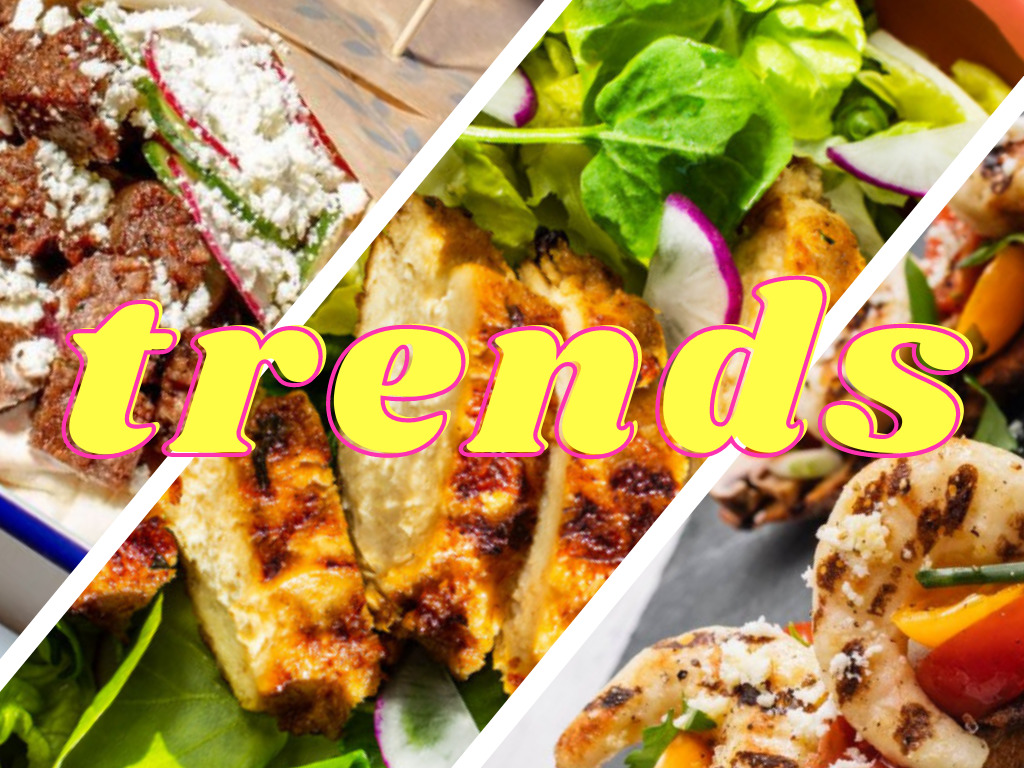10 Mins Read
Another year, another set of Green Queen trend predictions. 2021 was a bumper year for the global alternative protein industry and less than three weeks into 2022, it’s looking even more wild. The raises are getting bigger, the launches are getting bolder, the plant-based meat is getting real-er (ok, not a word). And the reality is, the world needs alternative sources of protein more than ever. In 2021, global animal meat production was responsible for almost 60% of all food-related greenhouse gas emissions.
As the editor of a media publication that reports on the action daily, I am on the sidelines of every funding deal, every product launch, every new company formation, every regulatory update. Not to mention hundreds of WhatsApp/Discord backchannel chats. This affords me a unique insight into what’s coming next. So whether you are an hungry VC, an aspiring future of food founder, a curious university Professor or simply an alt protein enthusiast, you’re going to want to read my top 12 trends list. Here goes, (in no particular order).
By the way, I did a Scott Galloway and I graded myself on my 2021 alt protein predictions. Check out how I fared here. Also, food tech is such an exciting space that I’m working on a separate list of general trend predictions that will be published soon.
1) Private Label Plant-Based Matures
QSR chains and grocery retailers are nothing if not margin-clever. Paying top-shelf prices to plant-based meat companies is not an attractive long term plan for shareholder returns. Beyond, Impossible and the like come at a high cost premium, even with the wholesale discount. Which is why US-based Mexican fast-casual chain Chipotle created its own vegan chorizo and sofritas in-house, and why UK/European supermarkets can’t launch enough own-brand plant-based foods (UK supermarket behemoth Tesco boasts over 600 items in its line). Note: US supermarkets are behind on this.
Big Food is all-in on plant-based, which means more, better and cheaper choices for consumers. On the other hand, the plant-based meat market is going to get a lot more competitive and you better have top-notch R&D and a product that is super high fidelity (e.g. Impossible Foods for ground beef) if you want to grow your market share (also: have your supply chain sorted!).
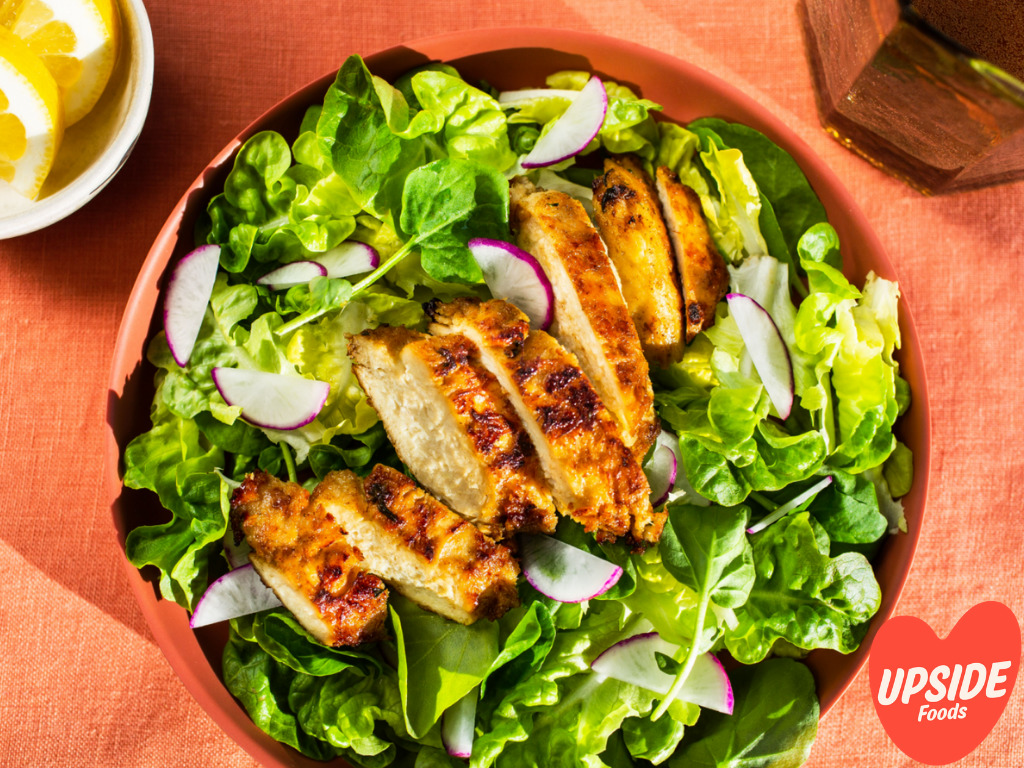
2) Regulatory Approval For Cultivated Meat in US or Israel
Way back in Jan 2020 we predicted the US, Singapore or China would be first to approve cultivated meat for commercial sale in our inaugural Asia Alternative Protein Industry Report 2020. Singapore claimed the crown in Dec 2020. 2021 saw no real further progress. My bet is that either the US or Israel will approve cultivated meat in some form in 2022. China seems a long way away at this point (our sources say the government is adopting a wait-and-see approach despite the potential for cultivated meat to solve all manner of issues). If the Netherlands weren’t part of the EU we might add them to the list, but since they are we don’t see them taking the lead on this. If I had to put money on it, I’d vote for the US. From everything I read and know we are very close to approval.
This is great news for People, Animals and The Planet. We need cultivated meat if we are going to solve food so this would be a boon. Bad For: Meat companies. Though to be fair, it’s going to be a while before cultivated meat achieves price parity or consumer acceptance so there’s still time for cheap, industrial soy-fed ground beef to dominate on supermarket shelves. However, if regulators get their act together and stop subsidizing the most carbon-intensive food on earth and require carbon labelling on foods, then Big Meat will need to re-configure itself, and fast.
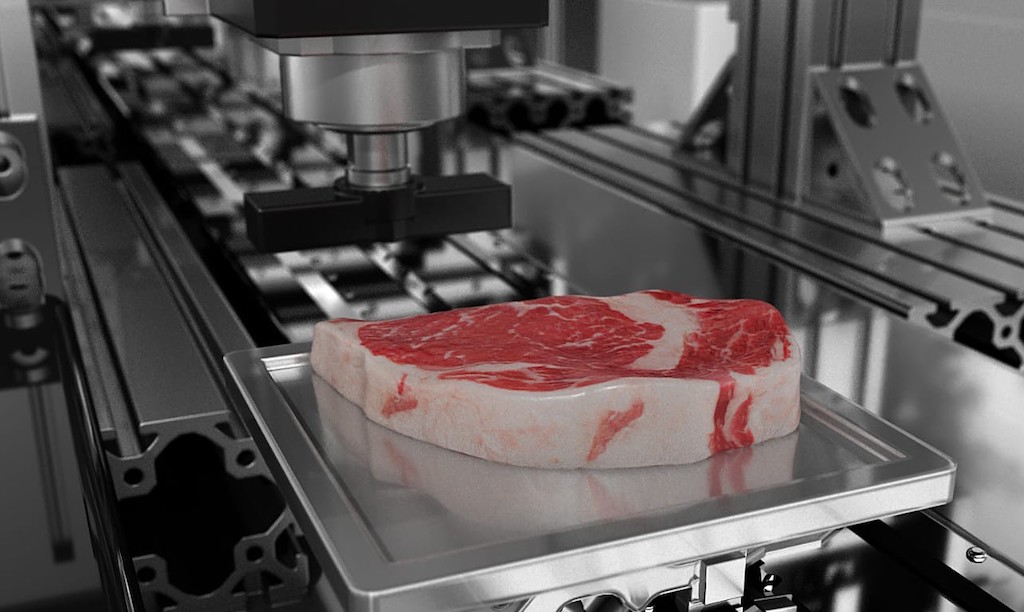
3) Cultivated Meat/Seafood Supporting Tech Takes Off
In 2021, a global basket of super clever entrepreneurs and scientists proved what sci-fi has known for years: you can grow animal protein in labs. We’ve got shrimp and crab and beefsteak and salmon sashimi and chicken breast and foie gras and so much more. So what’s the roadblock (other than regulation)? Scalability. Which is why a host of startups are throwing their hat into the upstream ring with a focus on things like scaffolding, 3D printing technology, FBS-free serum and bioreactor machinery. This is a really good thing. It can’t just be an industry of end consumer products/a few big players controlling production. We need an entire cultivated meat infrastructure. I reckon we will see a lot of this in the coming year.
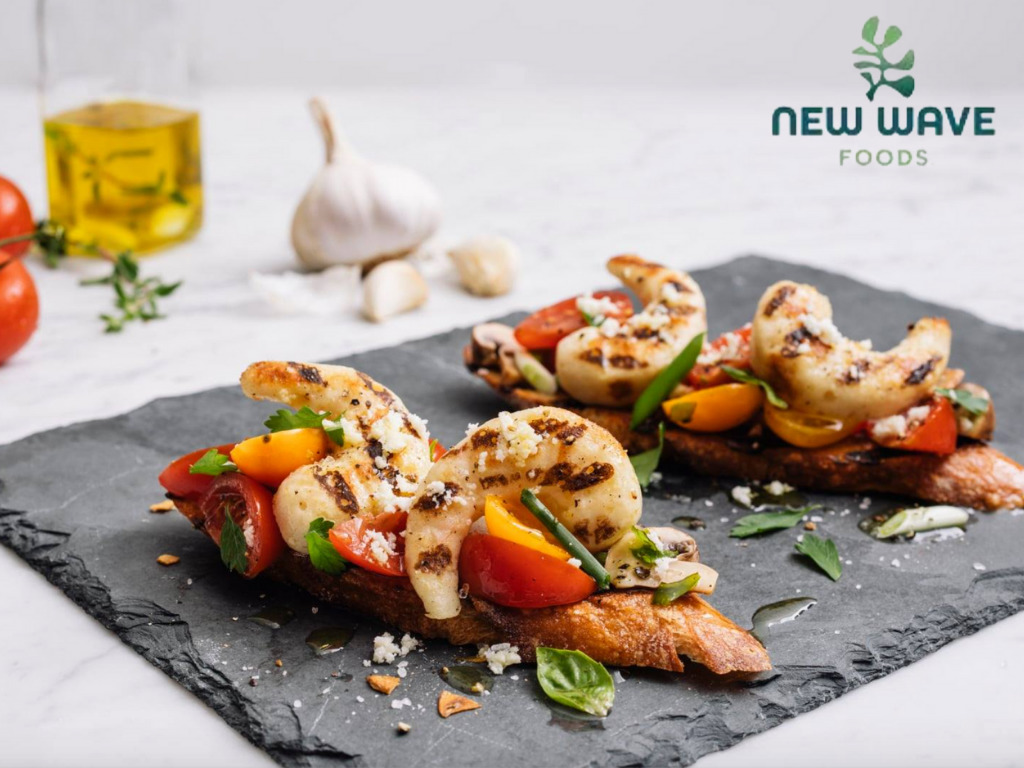
4) Plant-Based Seafood Claims Larger Market Share
Seafood alternatives currently account for less than 1% of all US plant-based meat sales according to data from the Plant Based Food Association (PBFA). Last year the sector properly skyrocketed and, over the past couple of months, it seems a new plant-based seafood startup/brand/product launches every week. I expect this will continue, and then some. Especially in Asia, which accounts for the highest seafood consumption per capita globally. It’s also a slightly easier road for these companies, as plant-based beef/chicken companies have forged the path and trained both retailers and consumers. That being said, replicating the taste, texture and culinary abilities of a fatty fish fillet is a tall order. Let’s see.
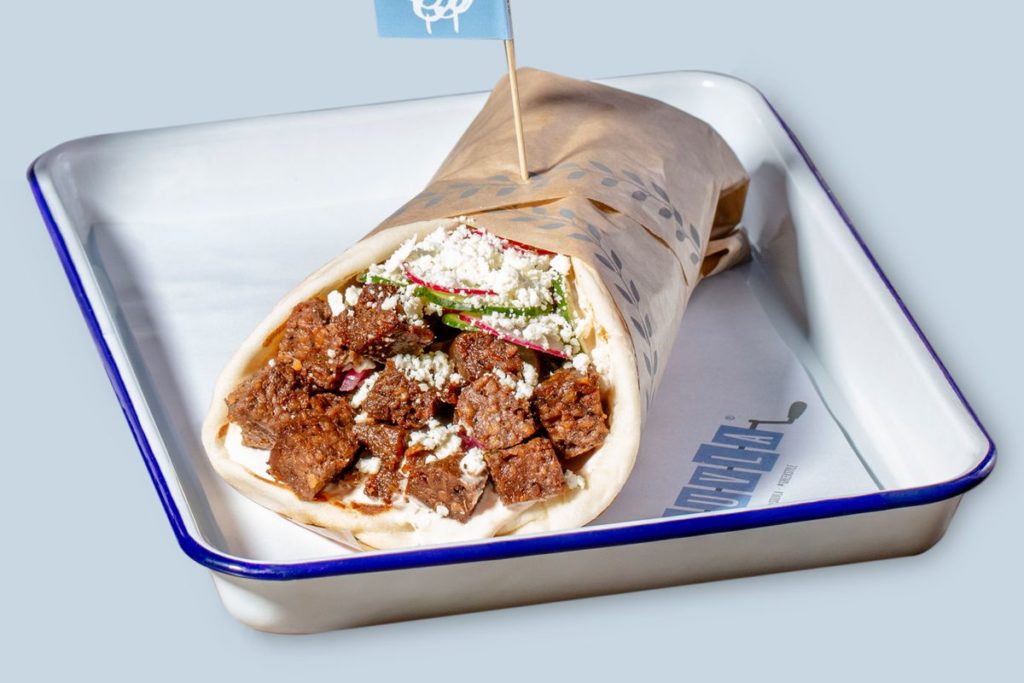
5) Other Plant-Based Meats Gain Traction
Beef burgers, chicken nuggets, minced pork… there’s no shortage of brands serving up plant-based meat basics. But there’s a whole lot more variety of animal meat cuts and types out there in the world (plant-based tripe, anyone?) and I foresee entrepreneurs diving in. Think lamb chops, mutton kebabs, ham slices, bacon…Still so much left to explore in this area. Looking forward to a much wider range of vegan meat launches in 2022.
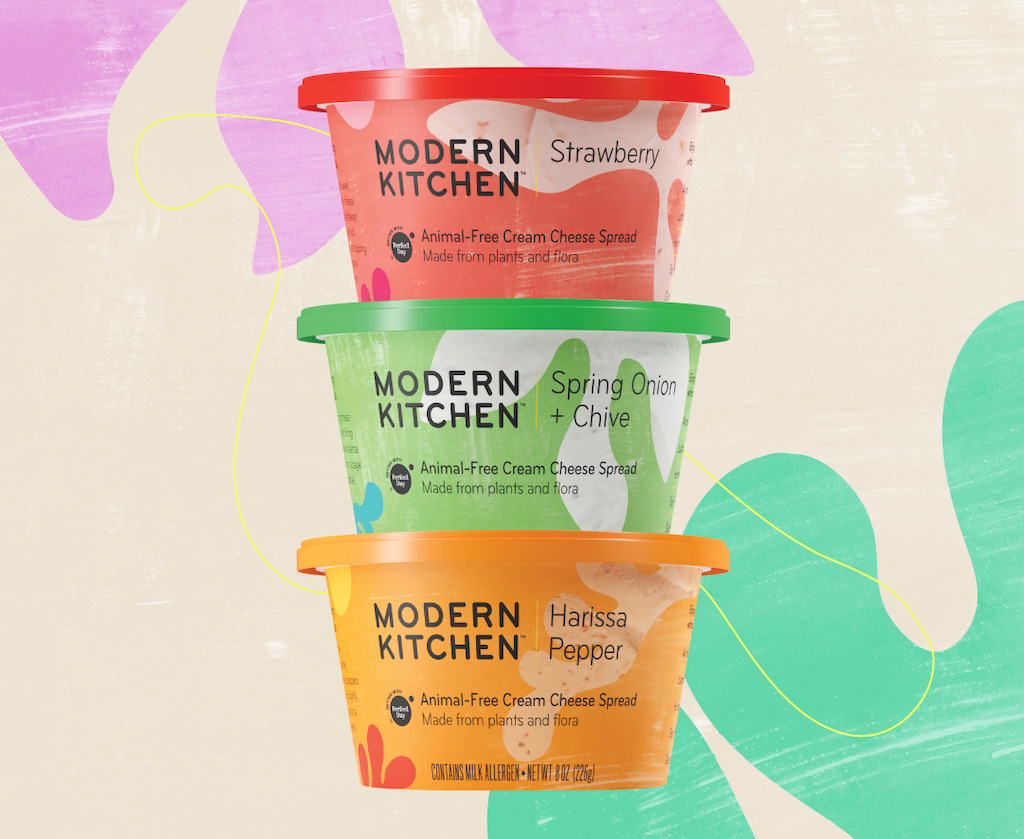
6) Precision Fermentation Dairy Continues To Explode
I predicted that Precision Fermentation would boom in 2021, and it sure did. However, I did not anticipate just how much the focus would be on dairy. But it makes sense. Plant-based cheese is still not feeling the most committed fromage lovers and this is where animal-free dairy (also known as bio-identical dairy) shines. However, while the valuations are high and Perfect Day is doing amazing things with whey, it’s casein that gives cheese all of its most unique qualities (it’s what makes milk thicken into cheese and what makes cheese stretchy). And our sources on the ground say despite the sexy headlines, we are still far off from scalable lab-made casein. Still, I expect WAY more companies to join the fray. Especially from Europe, where cheese is a lifestyle.
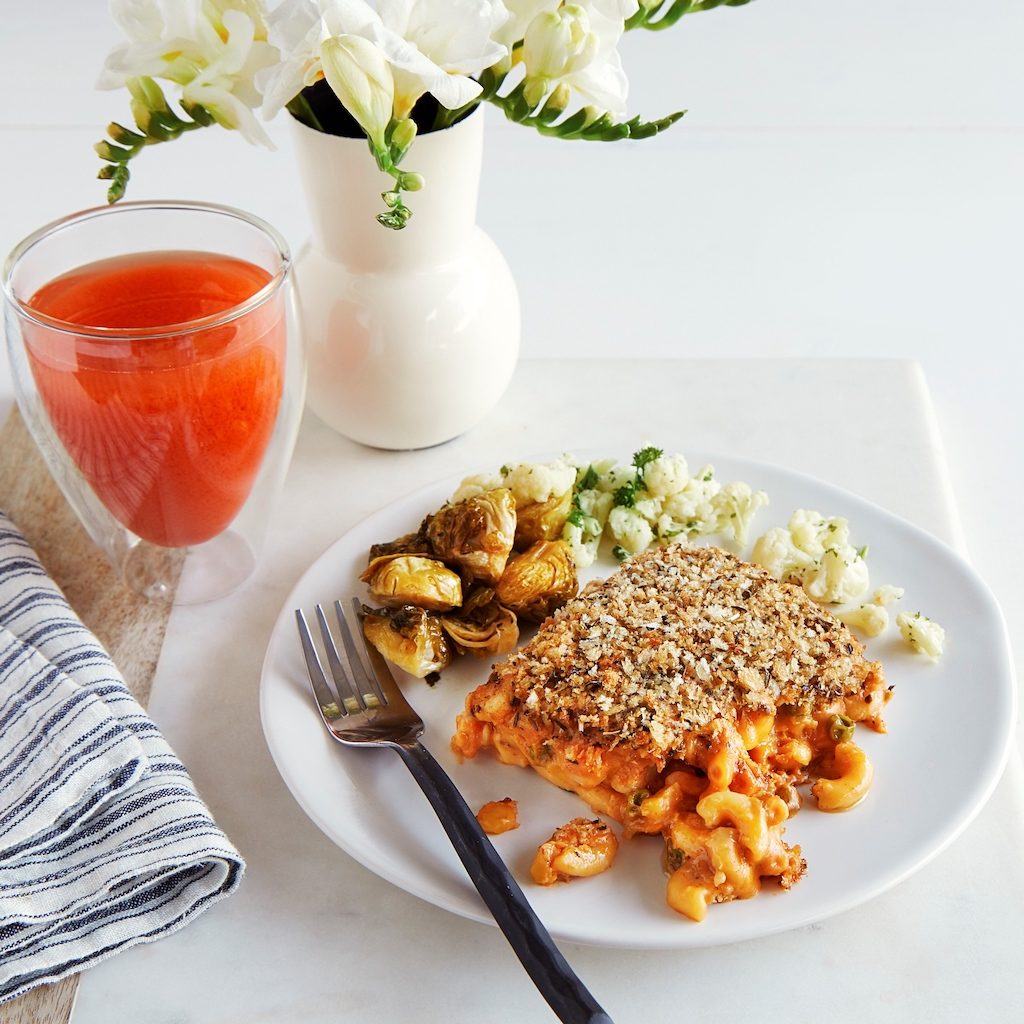
7) The Rise Of (Better) Plant-Based Convenience Meals
This is an area I am super bullish on. People are busy. People are working from home. People want ready-to-eat solutions. People are looking to reduce meat. Plant-based frozen/ready meals are the answer. PBFA data shows plant-based frozen meals were up almost 30% in 2020. Millennials and Gen Z are all about food culture. They are less about daily cooking. So far, the plant-based frozen/ready meal aisle/shelf has been super dull with a few legacy brands doing their mediocre thing. But I see this changing in a big way. Get ready for a new generation of plant-forward convenience meals- think diverse cuisines, sexier packaging, ‘cleaner’ ingredient labels and partnership with leading plant-based meat/dairy/seafood brands.
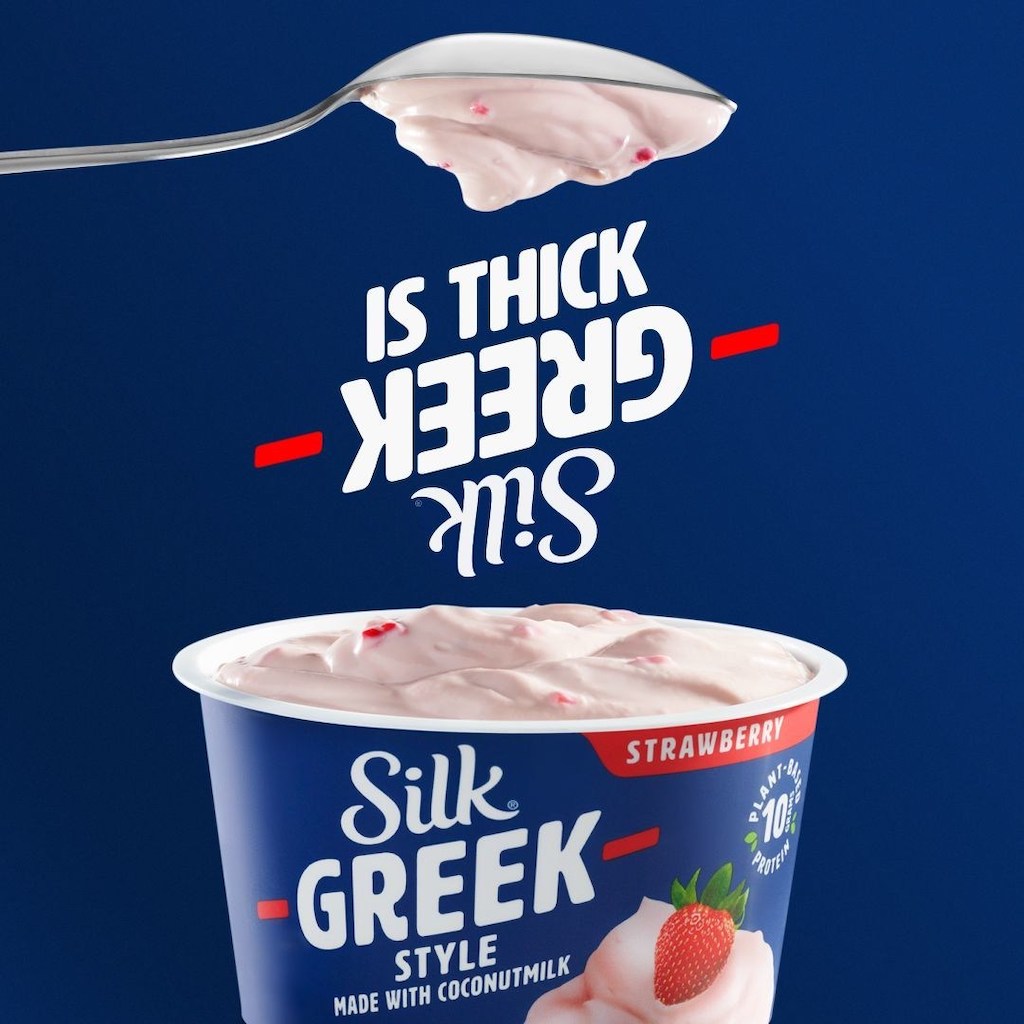
8) Much Better Plant-Based Creamy Dairy
Let’s just call a cow-free spade a spade. Vegan cheese/cream/yogurt is really not there yet. The commercial brands are too oily/starchy/rubbery. And while there are some incredible artisanal nut cheeses out there (I could eat those everyday, and I do), they are not high fidelity so they won’t convert die-hard cheese lovers. And they are too expensive for the average consumer. There is still no Impossible of vegan cheese. Yogurt/sour cream/single cream is even more of a quality desert. I know of a fair number of founders across the globe looking to address this market. Most are in their infancy but stay tuned. Also, fun fact: under-served areas like creamer are seeing huge growth. In the US, sales increased 33% in 2020. Butter is also an encouraging area, with Miyoko’s Cultured version owning the category (it’s as good as cow’s milk butter, truly!) but my assumption is we will get more high-quality vegan butters on supermarket shelves in 2022.
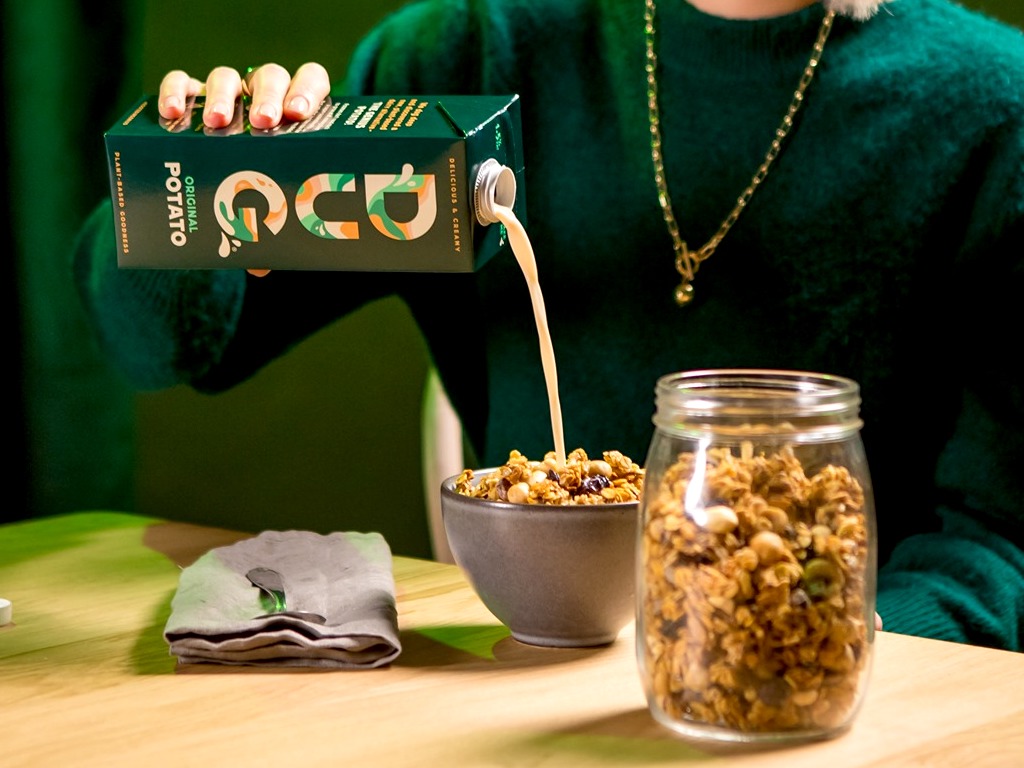
9) New Gen Milks Steal Headlines
One of our top 10 most popular articles of 2021 was about potato milk. Unlike meat shelves, which are still dominated by animal versions, the milk shelf has truly changed and for the better from an environmental point of view. 2020 PBFA stats suggest plant-based accounts for 15% of all milk sales. Dairy-free and animal-free milk is going nowhere; a large part of the world is dairy intolerant and more and more people are developing dairy/lactose allergies, so the market is far greater than vegans and flexitarians. I think 2022 will be the year of new kinds of milk, beyond almond/soy/oat. Think millet, green banana, chickpea, potato, fava, precision-fermentation dairy and who knows what else?
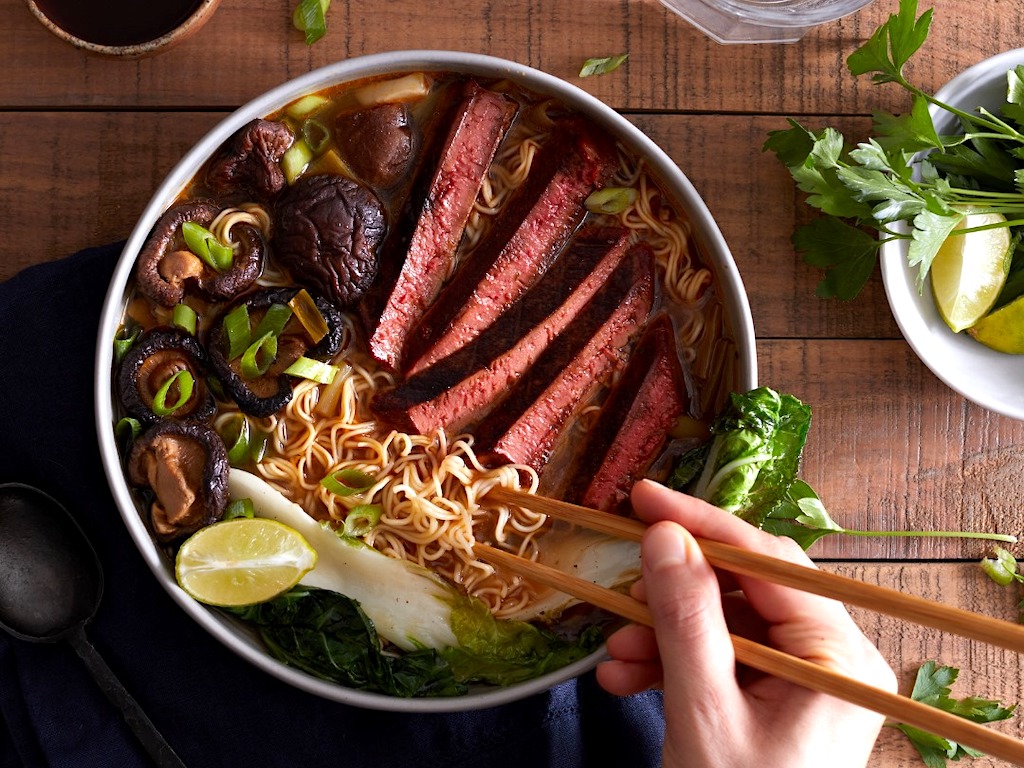
10) The Other Fermentation Takes Off
Only one new (Bill Gates backed) biomass fermentation company has made global headlines so far and Quorn pioneered this decades ago, but fungi and microbe-based alternative meat/seafoods are a huge and under-explored category. With the world awakening to the (super)powers of fungi (textiles! packaging! food!), I predict biomass fermentation is about to have its day in the sun. Not literally of course- most of the growing is happening underground. All of this is good news for meat analogue seekers, because products made this way mimic animal meat flavor and texture to a much higher degree than most plant-based versions.
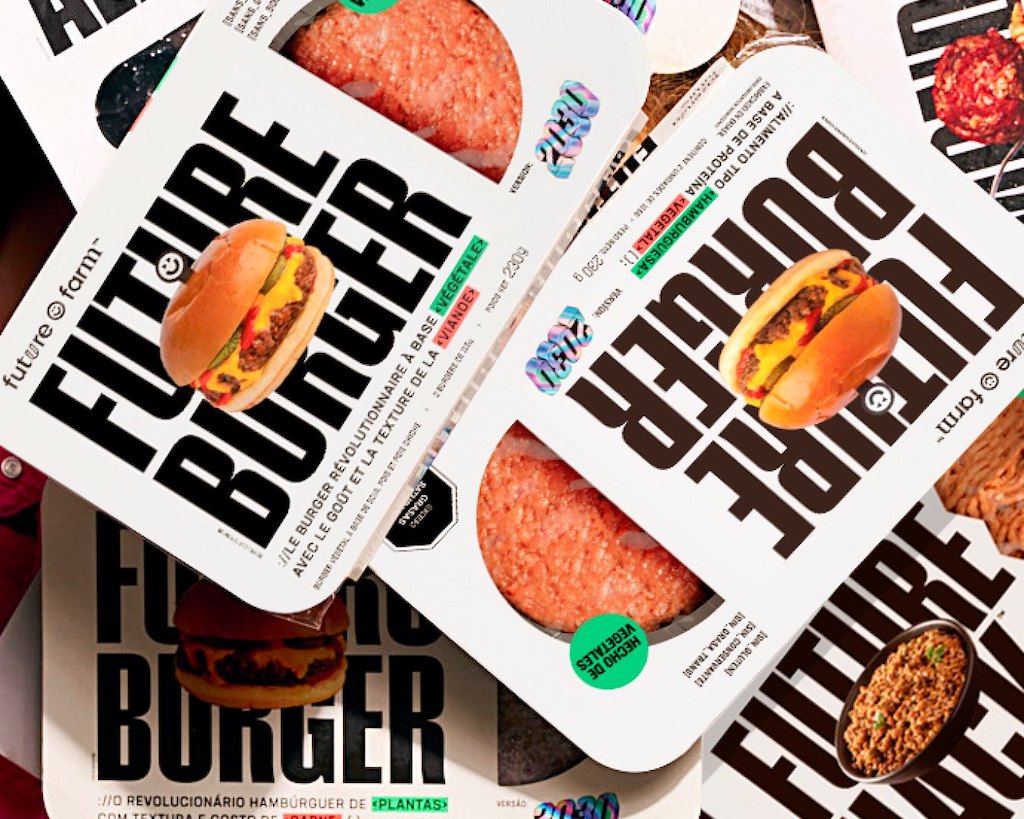
11) ROW (Rest Of World) Rising
People in Africa/Asia/LatAm don’t want all their food to be made by US or European founders. On the global political stage, nationalism is in. On the global food stage, too. Vegans and flexitarians from emerging markets want their own brands made to suit their own tastes, their own culinary predilections, made with ingredients familiar and geographically adjacent to them. Not to mention it makes much more (economic, environmental and common) sense to nurture homegrown talent/supply chains. Countries to watch: Brazil, South Korea, India. Continent to follow: Africa.
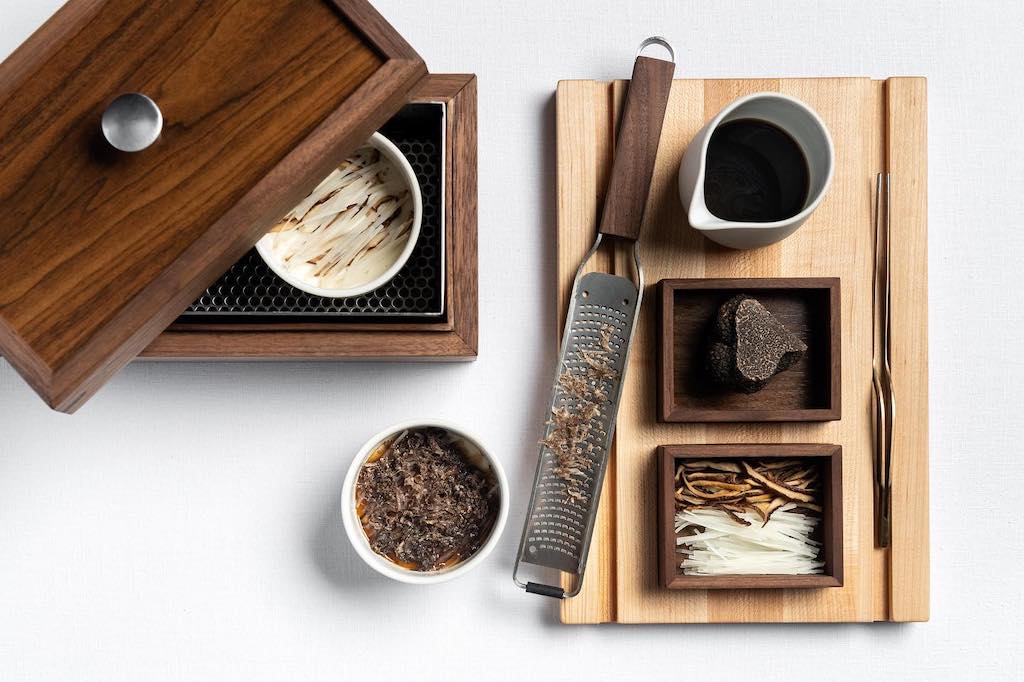
12) Vegan Fine Dining FTW
We are only at the beginning of the plant-forward fine dining revolution. I personally think it will get much more tricky for chefs at the top of their game to ignore the fact that eating animals presents an ethical and environmental conundrum. More chefs are looking to do better when it comes to their carbon footprint and that means reducing animal foods to a large extent. Whilst I don’t think every Michelin chef will be going vegan tomorrow, I do think there will be a whole more 100% vegan menus on offer, vegan transitions and vegan openings. NB: Still tricky on the alt meat x fine dining chef front. While some chefs we speak to embrace the new meats by any other name, others eschew their ‘processed’ DNA. This back and forth will continue and purists aren’t going anywhere BUT in general, more and more chefs will introduce these products on their menus. And here’s the bonus trend: we foresee a host of new alt protein founders looking to serve luxury gastronomy with a new generation of products.
Lead image designed by Green Queen Media.


